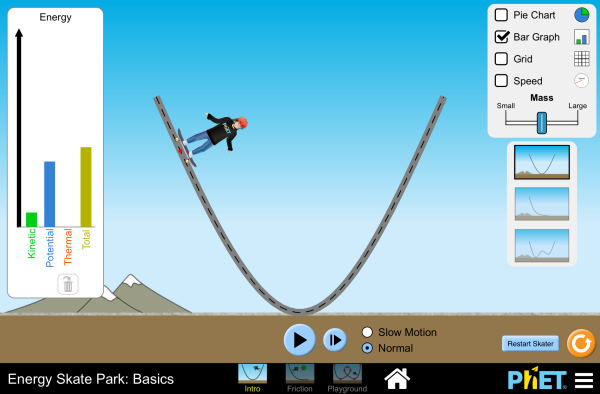Key Equations
| $$ E_{mech} = {1 \over 2} \, m \vec v \cdot \vec v \, + \, U $$ | |
|---|---|
| $$ U = mgh \,\, (gravity, h \lt \lt R_{earth}) $$ | $$ U = {1 \over 2} \, k ( \Delta s )^2 \,\, (spring)$$ |
| $$ \Delta E_{sys} \, = \, W $$ | |
Worked Problem
Similar to Knight vs 4 question 9.59. A horizontal spring (k=250 N/m) is compressed 12 cm and a 250g box is placed at the end of the spring. If the coefficient of kinetic friction between the box and the floor is (fk=0.10), What is the box's maximum speed? (Solve 2 ways...)Question: Why would this be a difficult problem for Newton's approach?
Key Ideas
ΔEsys = ΔK + ΔU + ΔEth = W + Q
- if Q=0 & W=0 → isolated system
- if Q=0 & W=0 & ΔEth=0 → isolated, nondissipative system
F(s) = - dU/ds
Forces: conservative vs non-conservative
Thinking Steps
- Picture
- Choose System/Environment
- FBD if needed.
- Solve noting energy
